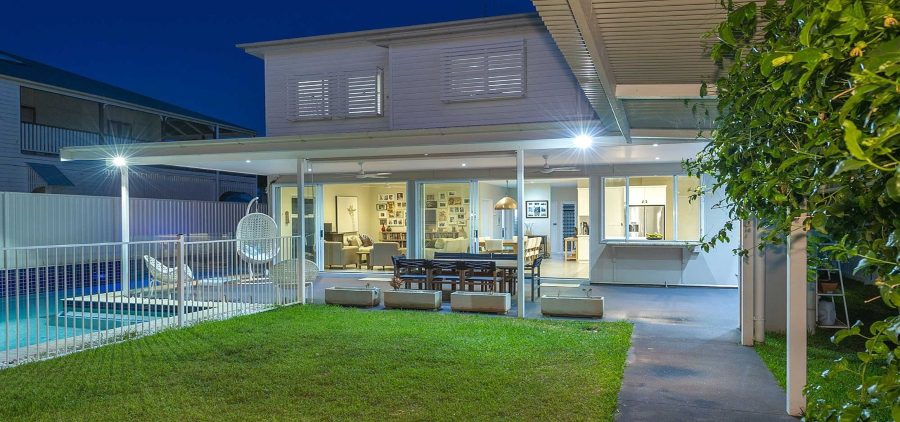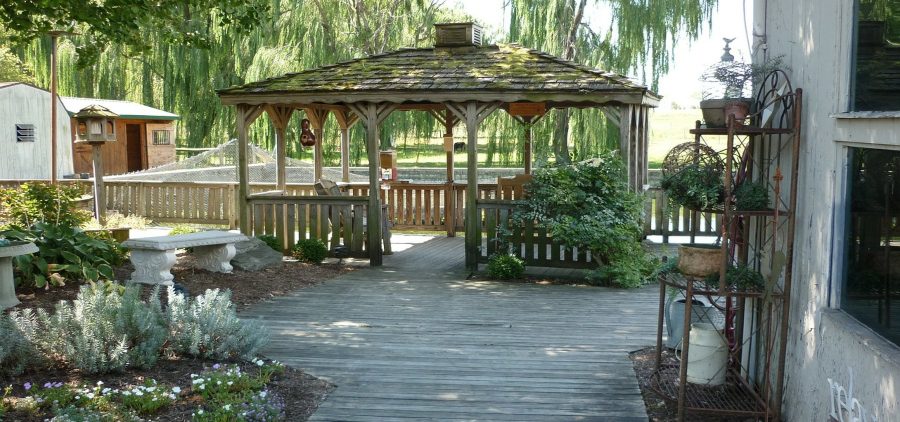When you choose to invest in real estate, you want the ultimate bang for your buck. There are a number of factors that can enhance your bottom line with the properties you own, but when it comes to value in the backyard, a deck is the best choice.
Decks have such a high ROI as they create what most renters are looking for – more space. They offer an outside room to supplement the inside area. You can almost guarantee your property will be constantly desired if, you build a deck with the right materials, maintain it and enhance it with the right furniture and décor.
Various sources estimate that a professionally built wooden deck can offer an ROI, (Return on Investment) from 73% to 100%. The ROI on decks built of materials other than wood is not as high, but still worth the venture.
An article in the Canadian Real Estate magazine cited a study done in 2015 by Century 21. It stated that adding a deck to your property can increase the feeling that the home is worth at least 10% more.

Now, you have decided to add a deck to your property, what are the major considerations necessary to do this successfully?
-
Check If You Need Building Permits
In Toronto, any deck that is higher than 24 inches, or 60 cm off the ground, requires a permit. There are also many other documents and signatures necessary to get this project off the ground. Do not be caught off guard when you make the decision to enhance your property. Verify what is required on the City of Toronto website.
It is important to know that each city or municipality has its own deck building requirements. Check your area before starting any construction, so no inspector or city worker can demand you change it, or tear it down.
-
When is the Best Time to Build
Even though our thoughts turn to outside renovations in the spring, the best time to build outside is in the fall. There are many important reasons for this:
- The ground is harder than in the spring
- Many construction/building crews are not as busy
- Pre-season sales can already be out for lighting and more
- Most stores are putting their summer outdoor furniture and materials on sale. It is more cost-effective to build during this season.
- The weather in the fall is much more conducive to building; less inclement weather
- You do not hurt your other landscaping that is being planted in the spring
-
Location and Design
An important consideration is where do you want the deck to go in the backyard. You can choose to attach it to the back/sliding doors as an option. That enhances the idea of adding more space to the property. Other options depend on why you are creating the deck meaning, is it going to be used as a tanning place, a home gardening center, or to surround a hot tub. Hot tubs have one of the worst ROIs.
Once you have chosen the location, you can consider what the best design for your deck is. Do you want it to be a place to BBQ, or just to relax and entertain, or to garden and tan? As soon as you figure that out, you can research designs by going online, watching HGTV, or heading to your local building store. Another way to get the best design for your deck is to hire a professional deck builder.
An important fact to remember is that wood decks produce a higher ROI and if they are maintained well can last up to 20 years. If a wood deck does not care for their life expectancy is only about 7 to 8 years.
-
Hire Professional Builders
The reality is that you could choose to build your deck as a huge DIY project, but it is not recommended at all. The main reason to do it yourself is that it will cost you about 50% less than if you hire a professional. Keep in mind, though that any mistakes made with such a major project can be very costly in the long run.
If you are a Toronto Real Estate Investor, you probably do not have the time it takes to complete this project and take care of all your other business. On top of that, there are myriads of information, materials, help, and more that is necessary for such an undertaking, if you did it yourself.
A professional building company will take care of buying and bringing in the materials, collecting, or informing you of exactly what permits are needed and do a good job in a matter of weeks. They can also design a great deck for you based on your wants and needs and have the expertise to do it right, the first time.

-
The Aesthetics
This consideration, the organic nature, and the beautification of your deck can cover a lot of factors. Depending on where your property is, you might want to add features to your deck to get even more value from its design. Consider adding:
- A cover or roof
- A fireplace or fire pit
- Chairs and Couches
- Mosquito netting, or screens
- Privacy coverings like outdoor drapes or panels. This sense of privacy is very important in the Toronto landscape, as there is often little room between homes.
- A table for everything from eating to game playing and more
When you choose the furniture, make sure it balances and compliments the inside of the property. A great deck not only stands as an outside room but is also an extension of the interior design.
Every Toronto Real Estate Investor that can add a deck to their residential properties should do it. As well, any Toronto Residential Property Managers who have the area on their buildings’ property should also consider adding a deck. The ROI is phenomenal, and the perceived value of the property will make finding and keeping tenants, especially during the months the deck can be used, more content and long-term.

